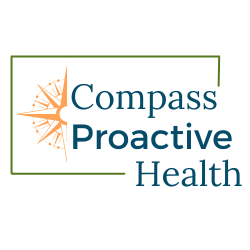Sleeping Your Way To Health
Sleep Hygiene - Establishing a System for Better Health
Hints and tips for better sleep.
There are many reasons to get sleep, but increasingly it’s the thing we all give up in order to get more things done. Wether it’s fitting the work out in, working late to meet a deadline, or just staying up late to have a little alone time after dealing with work and family all day; sleep is the thing that can give. The thing is, there is a great deal of research that shows that inadequate amounts of sleep are linked to a variety of health issues including heart disease, weight gain, depression, and dementia. Engaging in a healthy sleep patterns can not only fight off the development of these diseases, but are integral to the overall function of the body.
If you are having trouble sleeping there may be some things you may want to talk to your primary care doctor about. Sleep apnea is a disorder in which you breathing repeatedly stops and starts. Snoring and daytime fatigue are often signs of it. The most common, Obstructive Sleep Apnea, is where the throat muscles relax while you sleep, blocking your intake of air. This not only interrupts your sleep due to the fact that you can’t breathe, but it is also causing your blood oxygen levels to drop to worrisome levels. Excess weight, use of alcohol or sedatives, an already narrow airway, being male and older (sorry guys!), family history and nasal congestion are all risk factors. (Mayo Clinic, 2015)
How A Sleep Deficit Effects Your Health
Believe it or not, that inability to shed some pounds may come from a sleep deficit. Research has shown that even a single sleepless night can increase the hormone ghrelin in your system. This hormone increases the feeling of hunger and the drive to seek and consume food. Being tired could also lead to skipping exercise sessions or lowering your daily activity levels, which in turn decreases overall calorie burn.
And it’s no secret that we all feel mental fatigue when we get less sleep, and it' has been shown that lack of sleep only increases cognitive function deficits including memory, reasoning, and decision making. During sleep our brain goes through a self cleaning process that removes the waste from the day. In order to do this the brain actually shrinks! What this allows for is space between the neurons to increase by 60%. This allows the cerebral fluid to mix with the interstitial fluid (the fluid between cells) and to wash through the brain. This process washes out amyloid proteins. These proteins are associated with Alzheimer’s. Amyloid protein build up appears to interfere with a person’s ability to achieve deep sleep making a bad problem worse.
The other all too common issue is depression and increased anxiety. Lack of sleep can make you emotionally fragile. Fatigue can alter perception, which makes small things seem REALLY big. Coupled with the aches and pains that come with fatigue, your coping threshold can be pushed to the limit. This also tends to create added stress which puts your hormonal system into a imbalance of time spent in the sympathetic nervous system (Fight or Flight).
